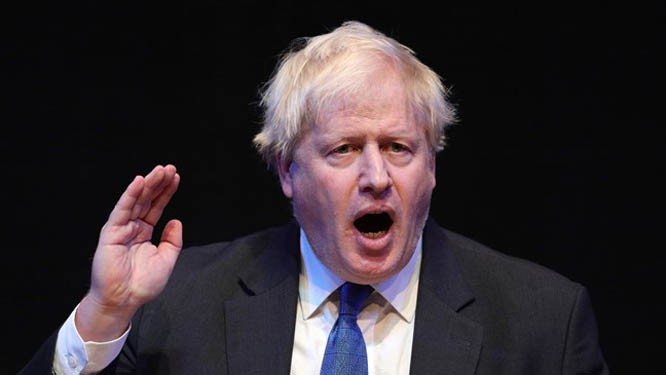
Britain’s political crisis deepens with the PM's suspension of parliament

Dear All,
When the British prime minister, Boris Johnson announced that he would be suspending parliament for five weeks in the run-up to the Brexit deadline, it was both unexpectedly dramatic as well as widely anticipated.
This is because when Johnson became Conservative leader and hence PM in July, his initial words and actions indicated that he was there not merely ‘to deliver Brexit’ (as his predecessor often reminded us was her purpose) but rather to deliver himself to power using Brexit to do so. His very first statement as PM sounded like a mini election manifesto, and his pledges to improve health, education and policing have been echoed in many subsequent statements and reinforced with the announcement of increased spending in these areas.
A general election was also a necessity because of the fact that the Conservatives now have a majority of just one (down from two) in the House of Commons. Because of this precarious position as well as dissent within the Tory ranks, May was unable to get parliament to approve her Brexit deal. Along the way, her government suffered the ignominy of suffering the worst parliamentary defeat in almost a century. Johnson’s challenge was how to deal with a hostile parliament, so now the suspension of the House has reduced the number of sessions available to legislators and so weakened the possibility of them presenting any alternatives to whatever proposals the Johnson government might present.
Parliament will be in session for barely two weeks before the Brexit final date (October 31st), so it is highly likely that it will be forced to accept whatever deal Johnson presents as the alternative to ‘no deal.’ Johnson’s move (through the mechanism of advising the Queen to make the relevant announcement), has shocked those MPs who are not die-hard Brexiteers: the Commons speaker termed this "an offence against the democratic process", the Liberal Democrats leader called it "a cynical prorogation", the director of the Hansard Society described it as an affront to democracy and the SNP leader said it indicated that the PM was acting "like a tin pot dictator." Supporters of the move point out that it is "well within the PM’s powers" and is "proper parliamentary procedure". Many voters also view it favourably as a good way to end the impasse so the PM can get Britain out of the post referendum and pre-Brexit limbo.
Thus all the outrage, the comment, the legal challenges, the plans for a no confidence vote - all of these will help to increase support for Johnson by casting him in the role of a decisive leader who seeks to honour the voters’ decision despite an obstructive parliament. Tom Kibasi, writing in The Guardian, describes the strategy: "Johnson’s intention is clear, he wants a people versus parliament election" thus portraying himself as a champion of the people who is resisting the plots of an elitist establishment, that is parliament and the critical media (!). Kibasi says that "Johnson wants to use Brexit to win an election… and realign Britain to the US."
The way to prevent this would be to have a successful no confidence vote against Johnson - in that event the Labour leader (or other candidate) would try to put together a majority and if that failed, then a general election would follow (but the date would still be decided by the PM, Boris Johnson). However, the problem with this is that many of the MPs who say they wish to stop Brexit are reluctant to support a move that might lead to Jeremy Corbyn becoming prime minister. The Lib Dems, for example, have declined to support such a move, thus proving themselves yet again to be, in effect, enablers of the Conservative government.
If parliament is suspended from the second week of September to October 14th, this will be the longest suspension since 1945. Political observers have called the present situation not just a political crisis but also a constitutional crisis, yet it seems likely that it will all increase support for Johnson and boost the Tories’ electoral chances.
So with Brexit accomplished and a comfortable majority in parliament, it seems likely that Johnson will partly achieve his childhood ambition to be ‘world king’. His buddy Donald will, no doubt, be delighted….
Best wishes